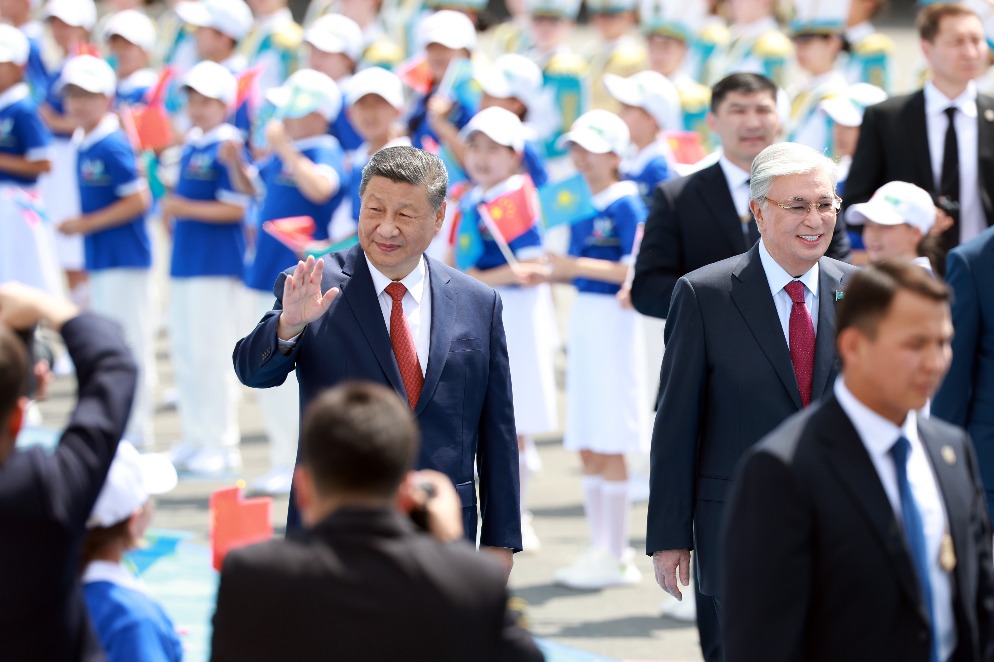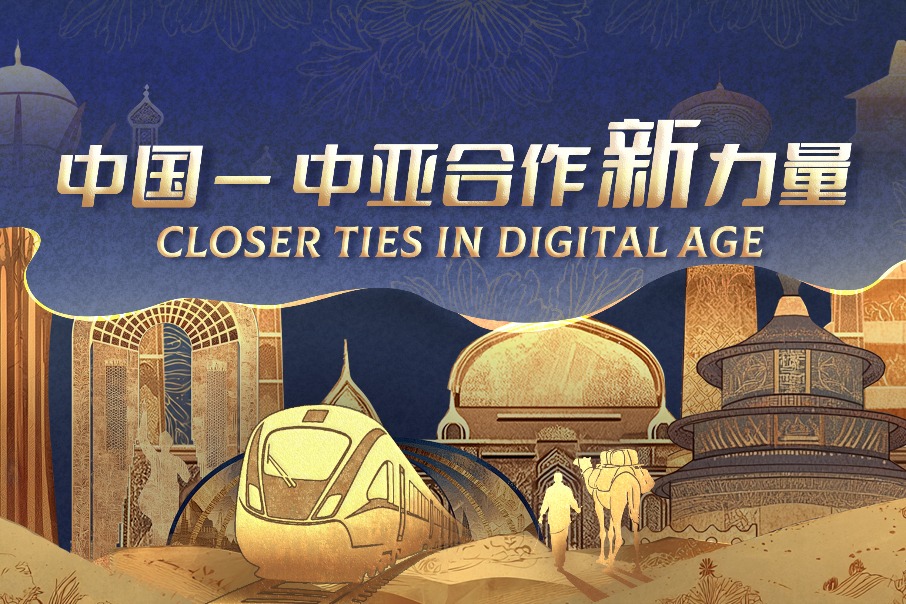Fruits of deepening partnership defy criticism


An old saying, "birds are strong with wings, people are strong with friendship", illustrates well China's assistance to modernize Kyrgyzstan's agricultural sector. China has been providing Kyrgyzstan with technology, helping expedite its infrastructure development, and training Kyrgyz farmers and experts, with the aim of creating new opportunities for Kyrgyzstan's agricultural sector. Apart from this, Chinese agricultural technology demonstration centers are showcasing advanced agro-technologies and methods, and facilitating the exchange of experience and knowledge between the two countries.
Thanks to the introduction of modern agricultural technologies like drip irrigation, greenhouse farming, and the effective use of fertilizers and plant protection products, Kyrgyz farmers are enhancing crop yields and improving product quality. This not only bolsters Kyrgyzstan's food security and rural development but also strengthens Sino-Kyrgyz cooperation under the Belt and Road Initiative, fostering economic growth and sustainable development in Central Asia. The Chinese agriculture demonstration centers play a crucial role in modernizing Kyrgyzstan's agriculture, aiding local farmers in adapting to changes and enhancing production efficiency.
The Apple Tree Park in the Chui region of Kyrgyzstan, spread across 10 hectares, was built by Northwest A&F University in 2018. While four frost-resistant varieties of apple trees and three types of rootstocks suitable for the local climate have been introduced to the park, the use of dwarf-gardening technologies has reduced the cost of growing apples by 30 percent in Kyrgyzstan. In fact, about 60,000 rootstocks are being grown in Chinese laboratories and transported to Kyrgyzstan every year, accelerating the development of apple nurseries.
Besides, China, Kazakhstan and Kyrgyzstan are working together on grain and oilseed crop projects in the Sino-Kazakh grain park, in which Kyrgyz specialists play active roles, while the introduction of wide-row wheat sowing in Kyrgyzstan has increased per-hectare yield, and a mechanism has been developed to commercialize the park's operation.
The outdated technologies of water conservation and land reclamation remain one of the biggest challenges facing Central Asian countries' agricultural sector. In this regard, China's experience in developing irrigation infrastructure can help Kyrgyzstan and the other Central Asian countries to address that challenge, especially to improve Kyrgyzstan's irrigation system.
Thanks to China's financial support, projects have been implemented in Kyrgyzstan's Issyk-Kul, Batken and other regions. For example, the reconstruction of the Ak-Olon canal (17 kilometers of highway and 11.2 km of distribution channels) has increased water supply to thousands of people, and the creation of a 470,000-cubic-meter water reservoir in Kara-Oi village in the Issyk-Kul region has reduced water shortage. And the reconstruction of the Nurgaziev Canal and the Shakhimardan system (co-financed by the World Bank) is expected to improve irrigation on 15,000 hectares.
Another example of cooperation among the three parties is the Sino-Uzbek demonstration park, which is testing solar sprinkler systems and intelligent fertilizer application systems for wheat and cotton. Equally important, China has transferred $1.12 million worth of equipment for artificial rain generation and pest control to Kyrgyzstan this year.
Furthermore, the two sides are working on a plan to sell Kyrgyz agricultural products in China, with the "freight railway express+ overseas warehouse" system transporting those products from Kyrgyzstan to China. Work on the Golden Way Asia-Europe international customs and logistics park is ongoing in the Chui region of Kyrgyzstan, with about $30 million being invested to optimize export and import operations and the Barskoon-Uchturfan-Aksu highway shortening the distance between Bishkek and the Chinese border, speeding up the supply of agro-products to China.
To access the Chinese market, Kyrgyz entities (such as beekeepers) undergo special training, or allow Chinese experts to inspect their products such as sweet cherries and farms and orchards. As a matter of fact, Kyrgyz sweet cherry growers can now export their produce to China without the help of intermediaries, and thus make more profit.
Chinese aid and other assistance — through a combination of infrastructure investments, technology, and institutional support, are transforming Kyrgyzstan's agricultural sector, strengthening the country's food security and export potential. China has been supporting the modernization of Kyrgyzstan's agriculture sector through multifaceted cooperation, including infrastructure projects, technological innovation, and harmonization of regulations.
While Chinese demonstration centers are facilitating the transformation of Kyrgyzstan's agricultural sector through adaptive technologies (apple trees, water conservation) and infrastructure development, the success of the programs depends on the development of the processing industry and the introduction of modern technologies. Projects such as smart ranches or an animal vaccine factory show the huge potential for Sino-Kyrgyz cooperation in Kyrgyzstan's agricultural sector.
Despite the objective nature of China's cooperation with Kyrgyzstan, some Western powers have been criticizing China for setting "debt traps" for countries like Kyrgyzstan. There is an old story about a dog and an elephant. The dog barks at the elephant, but the elephant ignores the barking, prompting the dog to think that the elephant is scared. The elephant goes about its business while the dog continues to bark. The story is reminiscent of the Western powers' criticism of China's aid to developing countries.
The author is director of the Institute for World Policy Study in Kyrgyzstan.
The views don't necessarily reflect those of China Daily.
If you have a specific expertise, or would like to share your thought about our stories, then send us your writings at opinion@chinadaily.com.cn, and comment@chinadaily.com.cn.

































